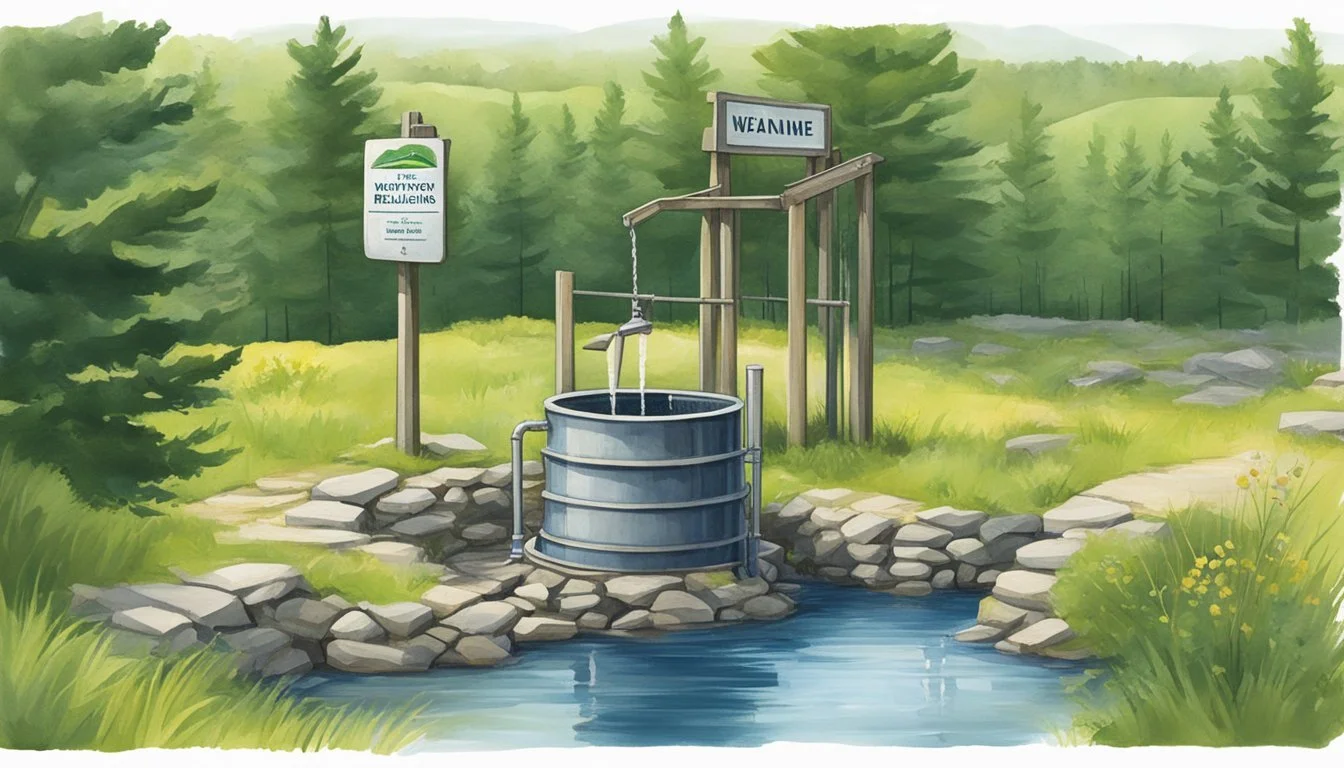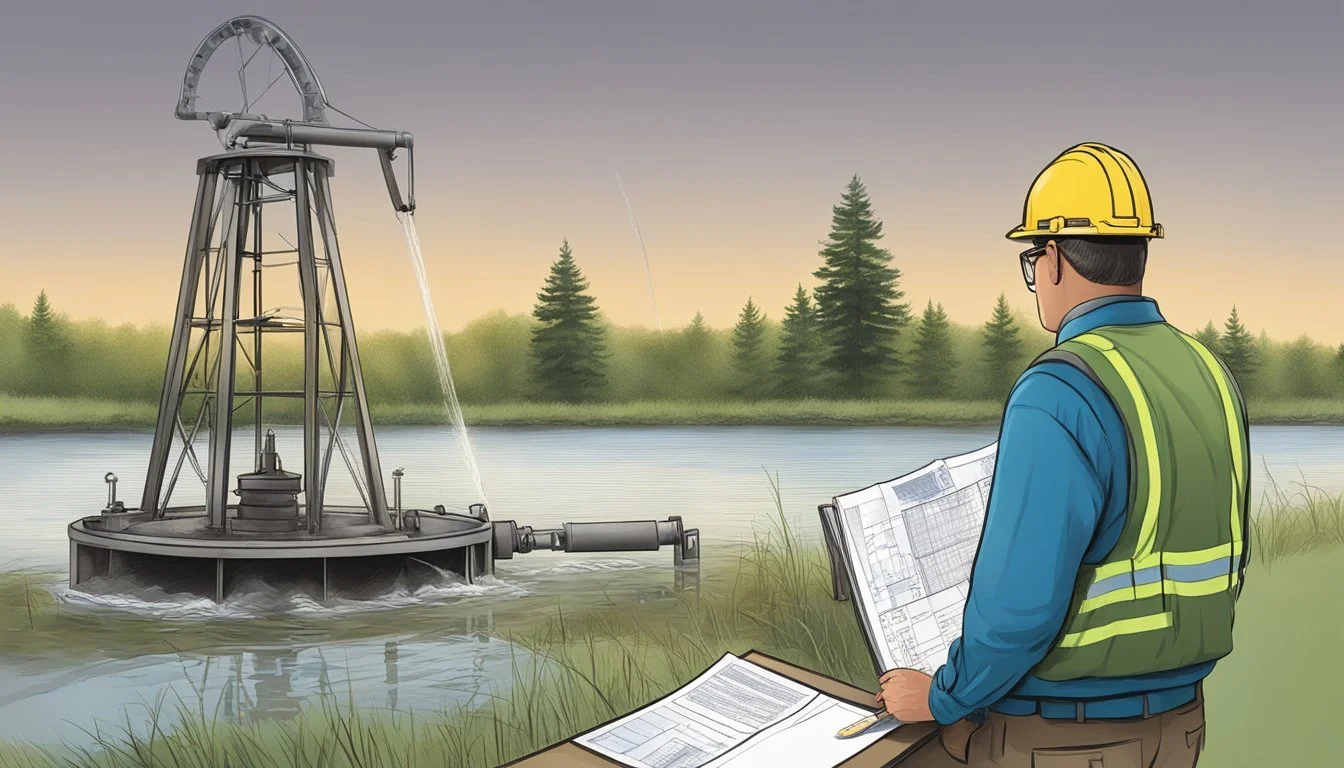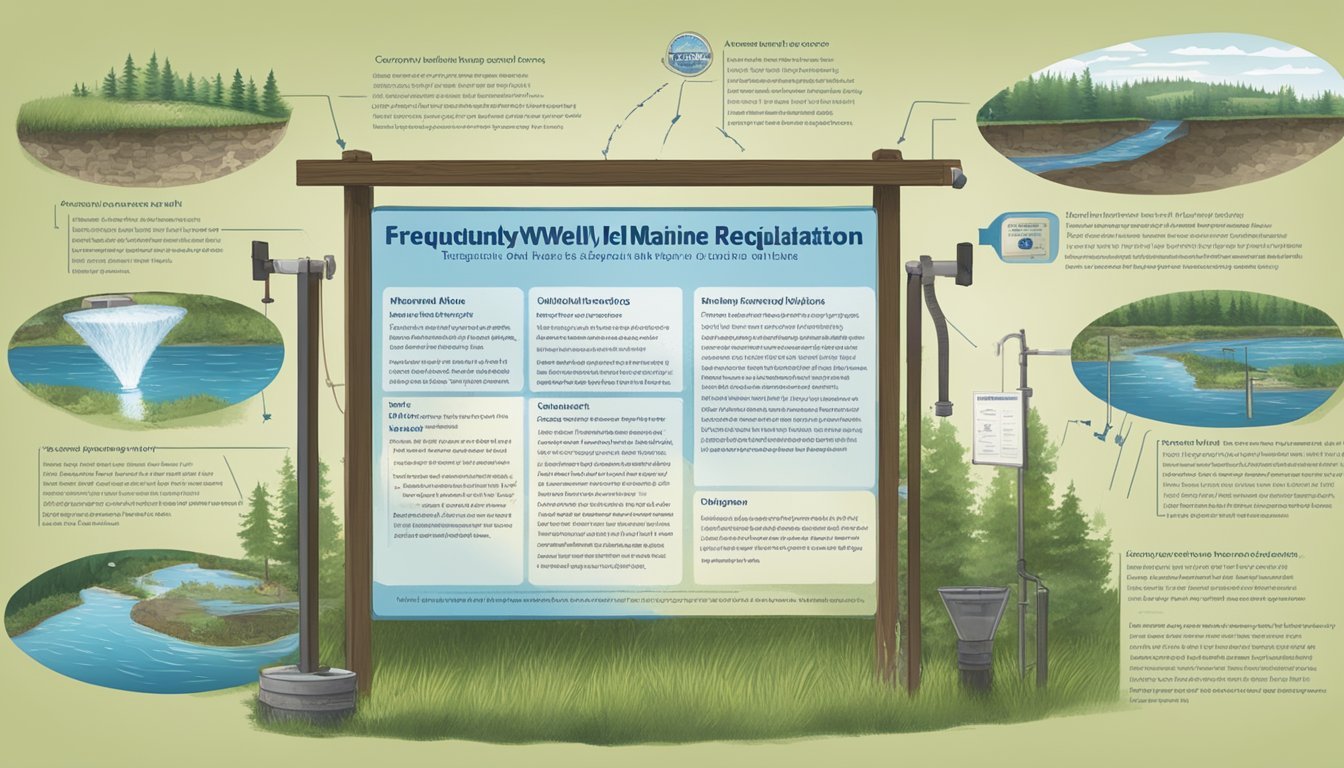Maine Water Well Regulations
A Guide to Compliance and Standards
The state of Maine is committed to safeguarding its natural resources, including the quality of its drinking water. To this end, Maine has instituted a series of regulations governing the construction, maintenance, and operation of water wells within the state. A key component of these regulations is the requirement for proper licensure for well drillers and pump installers, ensuring that only qualified professionals undertake the task of accessing groundwater resources.
The role of the Maine Water Well Commission, established by legislative action, is central to the enforcement of these regulations. The commission is responsible for setting the parameters for well location and construction to protect groundwater from contamination. Furthermore, the collaboration between the commission and the state legislature highlights Maine's proactive approach to environmental health, especially in ensuring that residents have access to safe and clean drinking water.
Maine's regulations do not only encompass professional guidelines but also offer recommendations for private well owners on how to responsibly manage and conserve their water usage. The state's Department of Health and Human Services provides resources and factual details, supporting well owners in their efforts to sustain Maine's groundwater quality. Through these combined measures, Maine upholds a robust framework aimed at protecting its precious water resources for future generations.
Maine Water Well Regulatory Framework
Maine's regulatory framework for water wells is structured to safeguard the quality of drinking water and the health of its residents. Critical components of this framework are encompassed within the Drinking Water Program, the licensing of well drillers and pump installers, and the oversight provided by the Maine Well Drillers Commission.
Drinking Water Program Overview
The Drinking Water Program, operating under the Maine Department of Health and Human Services, ensures that standards for well location and construction are established to protect both drinking water and groundwater quality. This program is instrumental in facilitating the understanding and management of Maine's groundwater resources.
Well Driller and Pump Installer Licensing
Licensing requirements are strictly enforced for well drillers and pump installers in Maine. These professionals must adhere to Maine Water Well Regulations, which stipulate minimum qualifications and demonstrate competency. This licensure is a keystone in maintaining the integrity of the state's water well infrastructure and public health.
Maine Well Drillers Commission
The Maine Well Drillers Commission was created to implement and oversee the regulations pertaining to water wells within the state. They are tasked with ensuring that wells are drilled, altered, or abandoned without compromising groundwater. Through establishing standards, the commission plays a crucial role in preventing contamination and protecting water resources.
Well Location and Construction Standards
In Maine, regulations regarding the location and construction of water wells are designed to safeguard ground water from contamination and ensure a reliable water supply. These standards cover site selection, construction methods, and procedures for specialty wells.
Siting and Setback Requirements
Maine's setback requirements are crucial for the prevention of ground water contamination. Wells must be situated at a safe distance from potential sources of pollution. For instance, there is a mandatory minimum distance from septic tanks, and in cases where the landscape or other factors require, a Setback Reduction Notification may be necessary. These measures are in place to protect water wells from being influenced by nearby contaminants, thereby ensuring clean and safe water.
Well Construction Methods
The construction of a water well must comply with state-mandated standards that dictate the proper methods to be employed. This includes guidelines for the types of materials to be used when drilling and lining the well. Well depth (ft) and well type also vary, depending on the geological formation, such as bedrock, and the specific water needs. Maine recognizes that each well is unique and requires understanding of local geology to ensure proper construction.
Specialty Well Application Procedures
For applications such as geothermal or irrigation, Maine has specific procedures to govern the construction of these specialty wells. The rules ensure that specialty wells do not impact ground water quality negatively. Deep knowledge of well type and local geology is essential in these applications to avoid any risk of water supply contamination. Each specialty application must adhere to Maine's stringent regulations for environmental safety and public health.
Water Quality and Yield
Maine's dedication to protecting its water resources is evident in the stringent regulations governing water quality and the measurement of well yield. Ensuring the highest quality of drinking water and adequate water quantity are key priorities.
Water Quality Testing
Water quality in Maine is paramount, particularly for wells, as they are a direct source of drinking water for many residents. The state adheres to the Environmental Protection Agency's (EPA) drinking water standards, monitoring for contaminants to maintain safety. Quality testing is crucial for early detection of potential health risks. Regular monitoring and testing protocols ensure that water quality is consistently maintained at safe levels for consumption.
Parameters tested: include but are not limited to pH, nitrates, arsenic, and bacteria.
Frequency: Annual testing is recommended; however, it may vary depending on previous water quality results and changes in surrounding land usage.
Reporting and Handling Contamination
In the event of contamination detection, it is required that the findings be reported to the appropriate state agencies. The Maine Water Well Program outlines specific guidelines for the proper response to such cases. It is imperative that these procedures are followed to prevent further spread and protect public health.
Immediate steps: include stopping well usage if contamination levels pose an immediate risk.
Remediation plans: may involve well treatment, alternative water supplies, or in certain cases, well reconstruction.
Determining Well Yield
Well yield, quantified in gallons per minute (gpm), indicates the amount of water a well can produce. It is essential for determining if a water source can meet daily usage demands. Maine law requires that well drilling companies submit detailed information about well capacity, ensuring that new wells are capable of providing sufficient water for their intended use.
Minimum yield expectations: typically range from 3 to 5 gpm, but more may be necessary depending on the size of the household or facility.
Testing method: involves a pump test to measure the yield over a set period, which helps in assessing the sustainability of the well.
By adhering to these regulations, Maine protects both the drinking water standards and the water supply, thereby securing water sustainability for its residents.
Well Maintenance and Troubleshooting
Proper well maintenance ensures the longevity and safety of private drinking water sources. In Maine, private well owners are responsible for the regular upkeep and prompt resolution of any water quality or structural issues that arise.
Routine Well Maintenance
Private well owners should engage in consistent maintenance to prevent system failures and water contamination. This includes regular inspections of their well's physical components such as the well cap and casing for integrity and to ensure there are no unauthorized connections that could compromise the well system. The Maine DWP - Water and Well Facts for Private Well Owners provides valuable information on maintaining private wells.
Key maintenance tasks include:
Annually testing water quality to check for microbiological contaminants or chemical substances.
Inspecting well equipment periodically to ensure functioning within the design specifications.
Regularly checking and documenting the water level in the well to monitor for any changes that could indicate a system issue.
Addressing Complaints and Violations
When complaints arise related to the water quality or operation of private wells, they must be addressed promptly. The Maine DWP - Well Driller’s Commission provides guidance on standards and regulations that ensure public health is not compromised. Violations of these regulations can lead to penalties and necessitate immediate corrective actions.
If violations are reported, the following steps are taken:
Investigation: A thorough investigation is conducted to assess the validity of the complaint.
Notification: If a violation is found, well owners are notified and given information about the nature of the violation.
Remediation: Owners are required to develop a plan to remediate the issue, which might include system repair or water treatment.
Technical Assistance: For those needing assistance, Maine provides Private Well Technical Assistance to aid in addressing and correcting well issues.
Through these mechanisms, Maine ensures that private well owners maintain the safety and reliability of their water supply systems while protecting public health.
Regulatory and Technical Assistance
In Maine, the regulation and oversight of water wells are under stringent guidelines to ensure environmental safety and public health. These measures involve both the Maine Geological Survey and local septic system considerations for their impact on groundwater quality.
Maine Geological Survey Assistance
The Maine Geological Survey provides a comprehensive Water Well Database that includes vital statistics for wells across the state. This data sheds light on aspects such as well yield, depth, and the geology of the surrounding area. This information aids homeowners and professionals in making informed decisions about water well placement and maintenance. Additionally, it serves environmental monitoring efforts by detailing the bedrock groundwater resources.
Septic Systems and Ground Water Interplay
The interaction between septic systems and groundwater is crucial when considering the potential for contamination. Proper septic system installation and maintenance are paramount to preventing harmful bacteria and chemicals from seeping into the water supply. Maine's regulations stress the importance of environmental health, with guidelines that dictate safe distances between septic systems and water wells to mitigate any risk of groundwater contamination.
Frequently Asked Questions
This section provides clear answers to common queries regarding the standards and regulations for water wells in Maine.
What are the water quality standards for well water in Maine?
In Maine, water quality in wells must meet the guidelines established by the Maine Center for Disease Control & Prevention to ensure safety for drinking and domestic use.
What regulations govern the construction of dug wells in Maine?
The Maine Water Well Commission specifies regulations for well construction, including dug wells, to protect groundwater quality and to establish safe distances from contamination sources.
What is the average cost of drilling a well in Maine?
The cost of drilling a well in Maine can vary, influenced by factors such as depth, geography, and the complexity of the installation.
How can I access the Maine well database?
Individuals can find information on wells within the state by consulting the Maine Water Well Commission's database, which provides detailed records of water wells.
Are there requirements for testing well water for arsenic in Maine?
Yes, Maine recommends testing well water for arsenic, among other contaminants, to ensure the health and safety of its residents.
What distance is required between a well and a septic system in Maine?
Maine regulations require a minimum distance between a well and a septic system, details of which can be found via the Maine Drinking Water Program to prevent cross-contamination.







